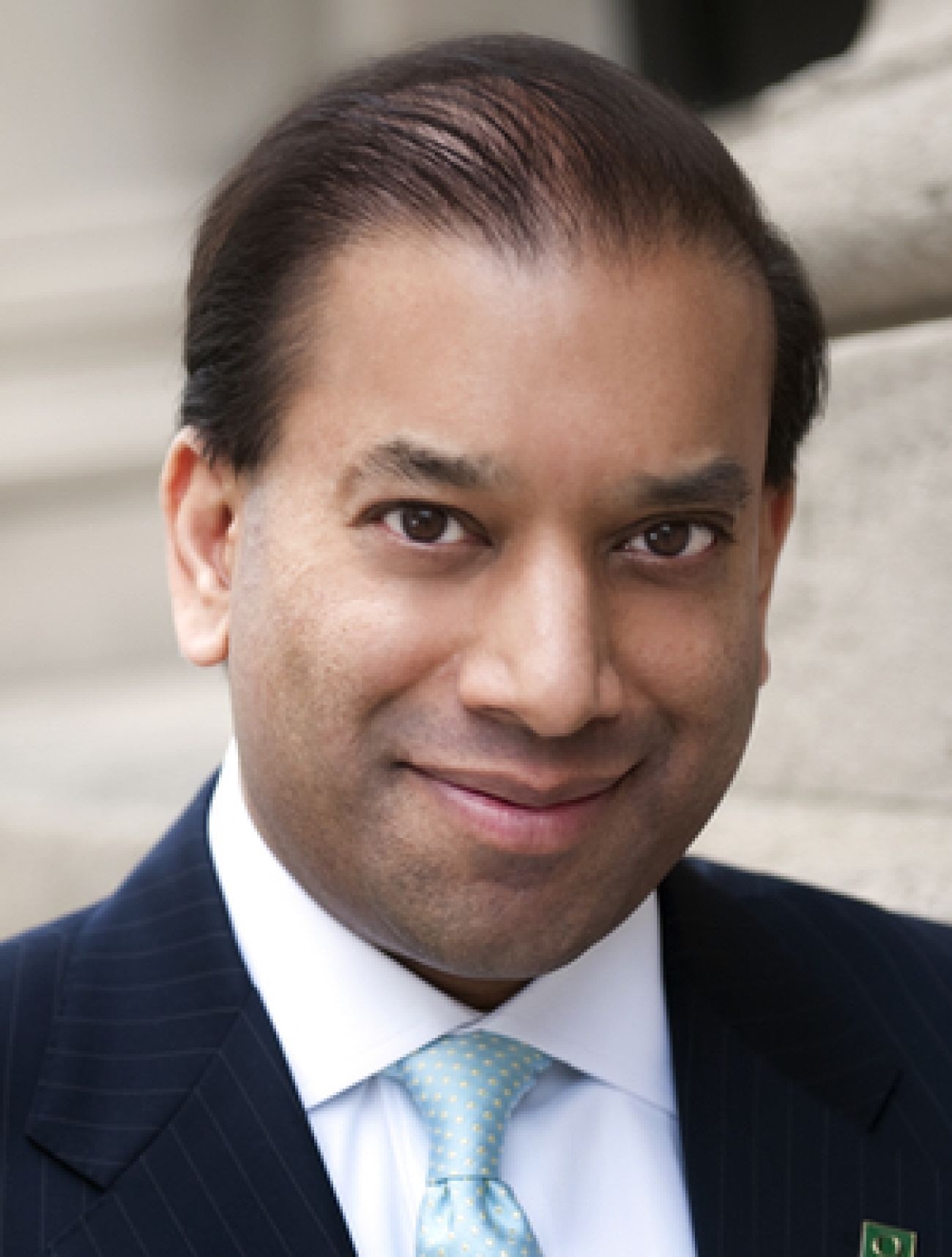How Trump can help Detroit

Labor Day weekend 2016 was just getting underway when the man seeking the presidency made a pledge to members of Detroit’s Great Faith Ministries International, the predominantly African-American church whose leader had extended the invitation to address its congregation.
“As I prepare to campaign all across the nation, I will have the chance to lay out my economic plans which will be so good for Detroit," Donald Trump told the crowd. Later, he told the church’s leader, Bishop Wayne T. Jackson, he would be the city’s salvation.
"I say it proudly, you have record-setting crime, poverty that is horrible, bad education in inner cities,” Trump said. “Everything is bad. What do you have to lose? I’ll fix it."
The new president has been, and continues to be, criticized by African-American and urban leaders for his broad-stroke, apocalyptic view of inner-city neighborhoods. At the same time, there is no question that Detroit needs everything Trump talks about: better schools, safer streets and more jobs for ordinary residents. So we asked the city’s civic and religious leaders, few of them Trump fans, which goals might be achievable with the right funding and guidance from a Trump presidency.
The Rev. Larry Simmons wears two hats in Detroit. He’s executive director of the Brightmoor Alliance, a community organization in one of the city’s poorest but scrappiest neighborhoods. He also leads Baber Memorial A.M.E., a church there. And Simmons pledges, sincerely, that President Trump is prayed for there every week.
“I didn’t vote for him, but he’s my president now,” said Simmons. “I pray that the greatness he promised becomes a reality.”
Simmons is particularly interested in Trump’s pledge to end “inner-city crime,” a thorny problem for any leader. He sees a solution, but not a cheap or easy one: Education and jobs.
“The long-term solution is creating universal early child care and guaranteed college education, so that a child today is supported and nurtured from conception through college, without debt,” Simmons said. “What do you do with grownups without 21st-Century skills? A universal employment program that hires people, offers work and encourages them, through various means, to acquire new skills. Many will not be able to take advantage of it, but many will. They can clean up streets, board up houses, supervise parks. Take away the incentive for people to do crime.”
Simmons said he recognizes “some people have to be in jail. I’m not under any illusion about predators, but the majority of crime isn’t created by them.”
The key, he said, is to create opportunity for the would-be entrepreneurs to feel supported and thrive, to be encouraged to take the sorts of chances taken by Henry Ford and the Dodge brothers.
Rev. Kevin Turman is pastor of Second Baptist Church in Detroit and chairman of the board of the Harriet Tubman Center, a community-organizing group in the city. He’s upfront that he believes that right now Trump appears “overmatched by the office he now holds.”
But assuming he has a “Damascus Road moment” and sees the light, he said – then the answer is both fairly simple and, again, probably expensive.

“Detroit, like many urban centers, suffers from systematic disinvestment,” Turman said. “We have a lack of resources in education and an inaccessibility to quality employment. If he wants to meaningfully impact not just Detroit but also other urban centers, he would talk with political, business and education leaders about what might be most impactful.”
The city “is not an anomaly,” Turman said. “Use tax incentives to bring business into the city, improve education, improve safety and security in neighborhoods. And for the people who hearing that say, ‘No, we can’t afford it,’ consider that Congress has said it’ll find money for the (border) wall.”
A bridge to somewhere
When Trump spoke to the Detroit Economic Club in August, he rolled out a specific plan to aid business, and in fact touted his business expertise as a major reason voters should choose him. He promised regulatory reform, and one of his early executive orders requires that for every new federal agency regulation put in place, two must be identified for repeal. He also pledged, a lower corporate tax rate, two planks that put the local business community “very much in alignment” with the president, said Sandy Baruah, president of the Detroit Regional Chamber.

Baruah described the chamber’s business members as still in “waiting and watching” mode as the new presidency gets underway, due to executive actions on immigration and talk of new, higher tariffs on imported goods, particularly from Mexico, where many auto suppliers are located.
Baruah is optimistic about the future of the long-planned Gordie Howe Bridge, but otherwise said it’s too early to place bets.
“Pro-Trumpers are trying to discount some things that could be fairly serious,” Baruah said. “Anti-Trumpers are trying to make mountains out of molehills on some things. All this is adding to that noise, and I don’t want to do that.”
Big infrastructure projects like a new bridge to Canada promise jobs, which pleases organized labor. Don O’Connell, retired executive director of Detroit’s Operating Engineers Local 324, said infrastructure investment is the city’s best chance for collecting on the president’s promises.
“We’re encouraged that infrastructure and jobs are on the president’s radar,” O’Connell said. And while he was similarly heartened by the president taking an early, public meeting with labor leaders, he said he is discouraged by talk of repealing the Davis-Bacon Act, which guarantees the federal government will pay workers the prevailing wage as set by labor unions.
Workforce development doesn’t just mean hiring people and handing out hardhats, O’Connell said, but also investing in job training and fair wages so that good jobs make meaningful changes in the lives of those who hold them.
“We can’t keep kicking the (infrastructure) can down the road,” he said. “But what’s the plan? We don’t know yet. I’m just cautiously optimistic.”
The bridge has been on the state’s drawing board for years, and the American-side customs plaza made it onto Gov. Rick Snyder’s wish list, part of the larger list compiled by the National Governors Association and presented to the White House as the administration goes forward.
No concrete plan for spending has been reported, but with Canada picking up most of the cost of the span, and with Trump and Canadian Prime Minister Justin Trudeau recently reaffirming their support for the project, it seems a bright spot in what’s still a murky future for the president’s infrastructure spending goals.
Simmons, the minister and activist whose church hosted Trump in September, doesn’t know what, if anything, the president’s administration has planned for the city. The dust has hardly settled in its first month, and what he’s seen so far is a little baffling, he said.

“When he says he’ll cut taxes and mount a huge infrastructure program, and he is going to increase defense spending, and he is going to preserve Social Security and Medicare without cuts, and he is not going to increase the deficit? I just don’t know how that’s possible,” Simmons said. “He wants to create job opportunities, but I don’t see how he can do all this.”
The doctor is dealing
Health-care reform, particularly the repeal of the Affordable Care Act, was another cornerstone of Trump’s campaign, and his earliest executive orders paved the way for the piece-by-piece repeal of the law. Sen. Patrick Colbeck, R-Canton, said he believed repeal is inevitable and that the state could be better served by administering its own Medicaid spending via block grant.
Colbeck is a proponent of reforming primary-care payment systems, a variety of proposals whereby most individuals would pay their primary-care doctors on a monthly retainer, get most of their care there, then keep insurance only for catastrophic coverage.
Colbeck has sponsored legislation to exempt so-called medical retainer agreements from insurance regulations in the past, and said they bring transparency and competition to the healthcare marketplace. Under a block-grant system for Medicaid, which Congress is said to be considering, the state could recognize significant cost savings, Colbeck said.
Colbeck said he’s hoping to push legislation to enact a pilot program of 2,400 Medicaid recipients, to test such retainer agreements ahead of significant repeal measures coming from Washington.

Under a more conventional president, having a home state cabinet member confirmed might be seen as an advantage for that state – a powerful federal official with local knowledge and connections. At Excellent Schools Detroit, however, communications director Maria Montoya said she is not looking forward to the term of West Michigan’s Betsy DeVos, Trump’s newly minted secretary of education.
“We’re expecting it’ll be vouchers, and then some,” said Montoya.
Sorting out education
Introducing even more school choice into an already glutted education market like Detroit’s is not likely to improve learning for local students, Montoya said. Students need good schools that are accountable to students and parents, a combination that has proved elusive in Detroit’s wide-open school-choice environment.
DeVos family wealth and political clout have supported broad school choice initiatives for years and played a role in defeating a planned Detroit Education Commission, which its advocates hoped would calm the confusion in the city’s charter-school market by giving the commission authority over both traditional public and charter schools.
Excellent Schools Detroit’s mission is to help parents sort and evaluate their options in the city, Montoya said, disagreeing with “this idea that choice is the system that works. And our whole project is about (helping) families navigate that, because it isn’t working.”
Restock the city
Population loss has shadowed Detroit since the 1950s. Steve Tobocman, director of Global Detroit, an economic-development nonprofit aimed at maximizing the potential of immigrants and the international community, said that enacting policies that welcome the foreign-born is one strategy to reverse it.

“In 1980, 29 of the 50 largest cities lost population,” Tobocman said. “Most of the cities that lost population have since reversed course due to an influx of immigrants. No American city has been able to rebound from population loss without getting serious about immigration growth.”
But with the Trump team’s early moves toward curtailing immigration from Mexico and the Middle East, Tobocman said, as well as circulated copies of draft executive orders hinting at more restrictions ahead, there’s no reason he’s expecting any help from Washington in helping rebuild Detroit’s population, or energizing its economy, with immigrants. What’s more, he said he believes that other policy promises, particularly the border wall, actively threaten the state’s economy.
“Mexico is our second-largest trading partner after Canada,” Tobocman said. “Metro Detroit is the largest metro area trading with Mexico. One hundred thousand jobs are supported by our trade with Mexico.” A border wall, he said, would alienate not only that nation but much of the rest of Latin America.
See what new members are saying about why they donated to Bridge Michigan:
- “In order for this information to be accurate and unbiased it must be underwritten by its readers, not by special interests.” - Larry S.
- “Not many other media sources report on the topics Bridge does.” - Susan B.
- “Your journalism is outstanding and rare these days.” - Mark S.
If you want to ensure the future of nonpartisan, nonprofit Michigan journalism, please become a member today. You, too, will be asked why you donated and maybe we'll feature your quote next time!

